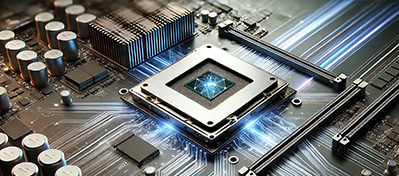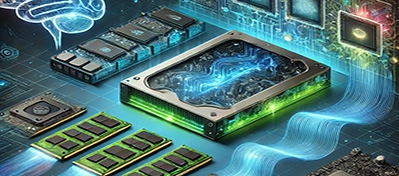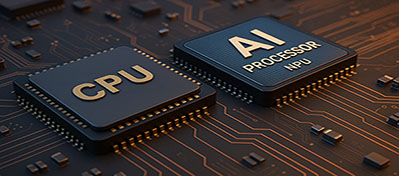Tier One Distribution - Your global partner since 1999
How AI is driving the next generation of technology

Artificial intelligence has become one of the most transformative forces in modern technology, impacting various industries, from healthcare to finance. Among its many influences, AI is shaping the future of PC hardware, driving manufacturers to innovate and develop new components optimized for AI workloads. As AI algorithms grow more complex and require faster processing and larger datasets, the demands placed on hardware have escalated.
The growing demands of AI on hardware
Traditional PC hardware was primarily designed for tasks like gaming, content creation, or business applications. However, AI workloads, such as machine learning training, neural network inference, and deep learning tasks, require specialized hardware with enhanced computational power and efficiency. The data-intensive nature of AI means that traditional CPUs often struggle to keep up with the needs of modern AI applications. As a result, hardware manufacturers have begun to rethink and redesign their components to cater to AI-specific tasks.
Key Hardware Innovations Driven by AI
CPUs and NPUs (Neural Processing Units)
Modern AI workloads demand more than traditional CPUs can offer. To address this, companies are developing specialized processors, including NPUs, which are designed specifically for AI tasks. NPUs are capable of efficiently handling neural network computations and can be found in edge devices, laptops, and even smartphones. Manufacturers like Intel have introduced AI-specific features into their CPUs, while others, like Apple, Qualcomm and Huawei, have developed NPUs for optimized AI performance.
GPUs (Graphics Processing Units)
Originally designed for rendering graphics, GPUs have become the backbone of AI computing. Their parallel processing capabilities make them ideal for handling AI tasks like deep learning and neural network training. Companies like NVIDIA and AMD are leading the charge with GPUs such as the NVIDIA Ampere architecture, which provides exceptional performance for AI workloads.
Memory (High-Bandwidth Memory)
AI applications process vast datasets, requiring high-speed memory solutions. High-bandwidth memory (HBM) is being integrated into AI-optimized hardware to ensure rapid data access, minimizing latency during training and inference tasks. This type of memory, from manufacturers like Samsung and Micron, allows for higher data transfer rates and is crucial in keeping up with AI's demand for real-time processing.
Storage (NVMe SSDs)
The large datasets used in AI also require fast and reliable storage. NVMe SSDs (Non-Volatile Memory Express Solid State Drives) offer much faster read and write speeds compared to traditional HDDs and even SATA SSDs. This ensures that AI models can quickly access the data they need, significantly reducing bottlenecks in the system during AI model training and execution. Leading brands like Samsung, WD, Intel, Seagate, Kingston, and Crucial provide a wide range of high-performance NVMe SSD solutions, catering to the demanding needs of AI applications. Their drives offer not only speed and efficiency but also reliability and endurance, which are critical for handling large-scale AI workloads and ensuring consistent performance over time.
How manufacturers are adapting to the future of AI
Manufacturers like NVIDIA, AMD, and Intel are continuously evolving their product lines to meet the growing demands of AI. NVIDIA, for example, has released GPUs specifically for AI, while Intel has incorporated AI-enhanced features into its CPUs. Additionally, companies are building entire ecosystems of hardware and software to ensure that AI applications run as efficiently as possible, providing developers with the necessary tools to optimize performance on these advanced processors.
AI’s rise is significantly reshaping PC hardware development. As AI continues to grow in complexity, hardware manufacturers are creating components tailored to the unique challenges and demands of AI workloads. With ongoing innovation, the future of PC hardware will be defined by its ability to support increasingly sophisticated AI applications.
AI and hardware development are deeply interconnected, each pushing the other towards new heights of performance and capability.










